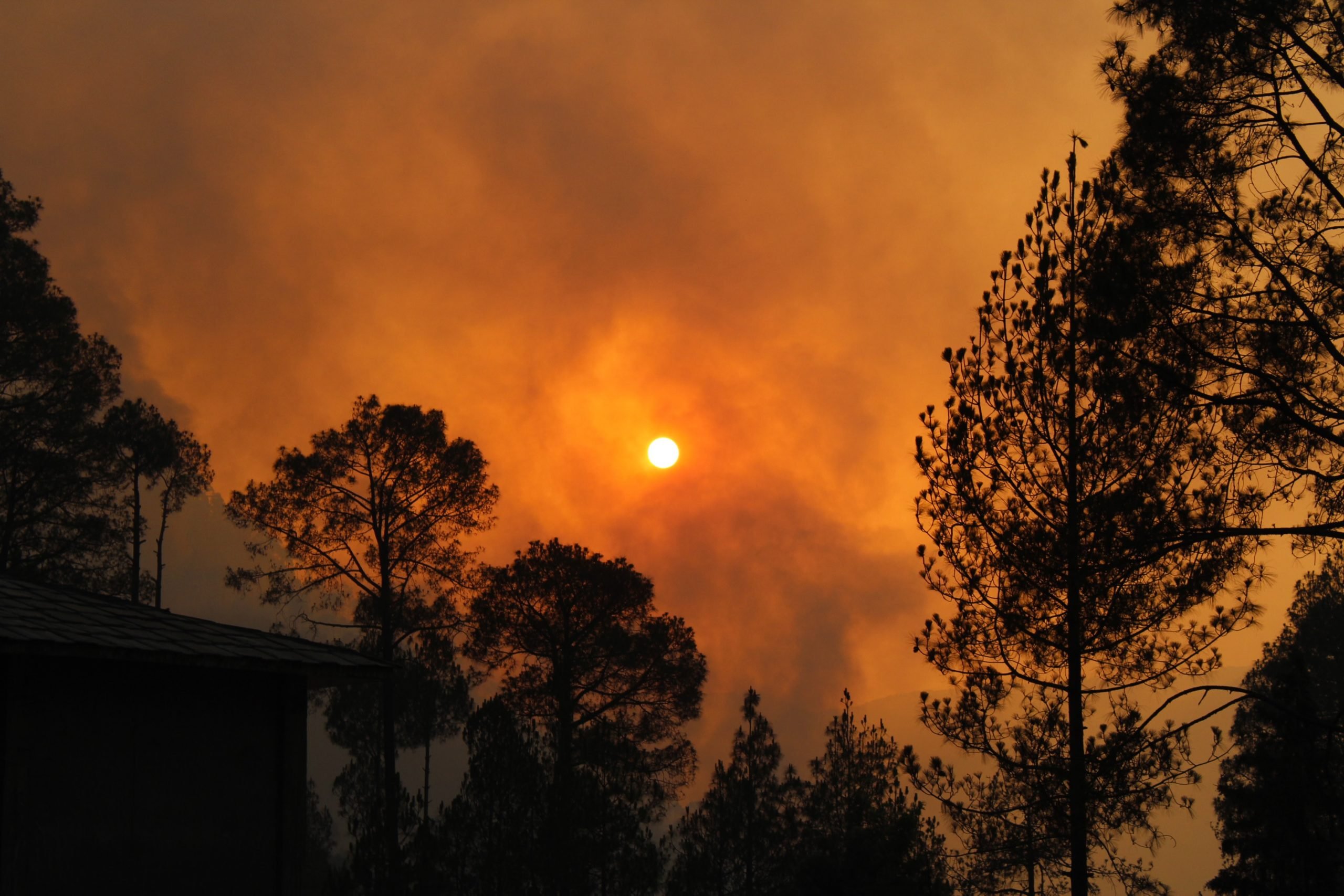“Take my love, take my land,” says the opening song in “Firefly,” a one-season sci-fi show about an army-veteran-turned-space-pirate and his team of scoundrels. “I don’t care,” it goes on, “I’m still free, you can’t take the sky from me.” But, when I landed in San Francisco airport last week, it seemed like someone had. Through the oval porthole, in place of the usual crisp yellow sunshine, I saw a thick orange haze.
There’s been a mistake, I told myself. I was supposed to land at noon, but maybe it’s evening. Maybe it’s just sunset in fog. But no. Forest fire smoke had blotted out the sun. I figured it would clear up when I got to campus, or maybe the next day, but it didn’t. Morning came in a sulfur-cloud haze, as did noon and evening, all the way until night. Two mornings later, looking out my window, I found myself wondering if the sky really used to be blue, or if I’d just imagined it.
Then I got another one of those emails: “It goes without saying at this point,” they said, “But this is not the way any of us had hoped to begin [the quarter].”
And I wondered: why are we still saying it if it goes without saying? How many more times do we need to hear words like trying, tumultuous or challenging as adjectives to times before we accept that these are simply the times we live in? How often do we need to be reminded that our hopes are unfulfilled and will remain as such for the foreseeable future?
When I signed Stanford’s Campus Compact, I was like, shit, this is strict; if only we could go back to last spring quarter’s rules. But during spring quarter, I remember wishing things could be like the year before, and the year before I was wishing I could fast-forward time to be recovered from surgery, and on and on until I’m never really living, just postponing it until some goal is fulfilled, after which, I promise myself, I’ll be free to soak it all in and start enjoying it.
“Hope,” writes Emily Dickinson, “Is the thing with feathers/ that perches in the soul/ and sings the tune without the words/ and never stops at all.” Sure. It’s also the thing with talons and a vulture-beak that doesn’t give a shit whether you’re living, appreciating, soaking in or whatever similar verb lets you cherish your being. Instead, it forces you to fixate on a romanticized past or unrealistic future at the cost of your now.
If you’d known that the last time you saw a clear sky would be the last time you saw a clear sky, would you not have looked up at it, stared until your neck cramped, until your eyes watered and the sapphire crispness was seared into your mind like a loved one’s last words?
If you’d known there would come a time when you couldn’t even shake hands without a fine, would you not have run through the Quad or your local mall, hugged every person who would let you, held them close and breathed in their perfume, pomade or herbal shampoo and squeezed until they pushed you away with perplexed looks?
What is it we should savor now? Should I run my fingers through every bush, wave to every masked passerby and lay down on every slab of cold, smooth marble? Should I sip tap water more slowly before we start drinking chlorinated piss and every cup has a vinegar-yellow residue and ammonia aftertaste? Should I run my fingers through every rosebush, memorize the velvety crunch of olive leaves or the rustle of street thistles before our air becomes too toxic to sustain them?
We don’t own the past or future; all we have is now. We can’t let hope take away our now, or we’ll find ourselves looking out the window one morning, wondering if the sky used to be blue.
Contact Nestor Walters at waltersx ‘at’ stanford.edu.
